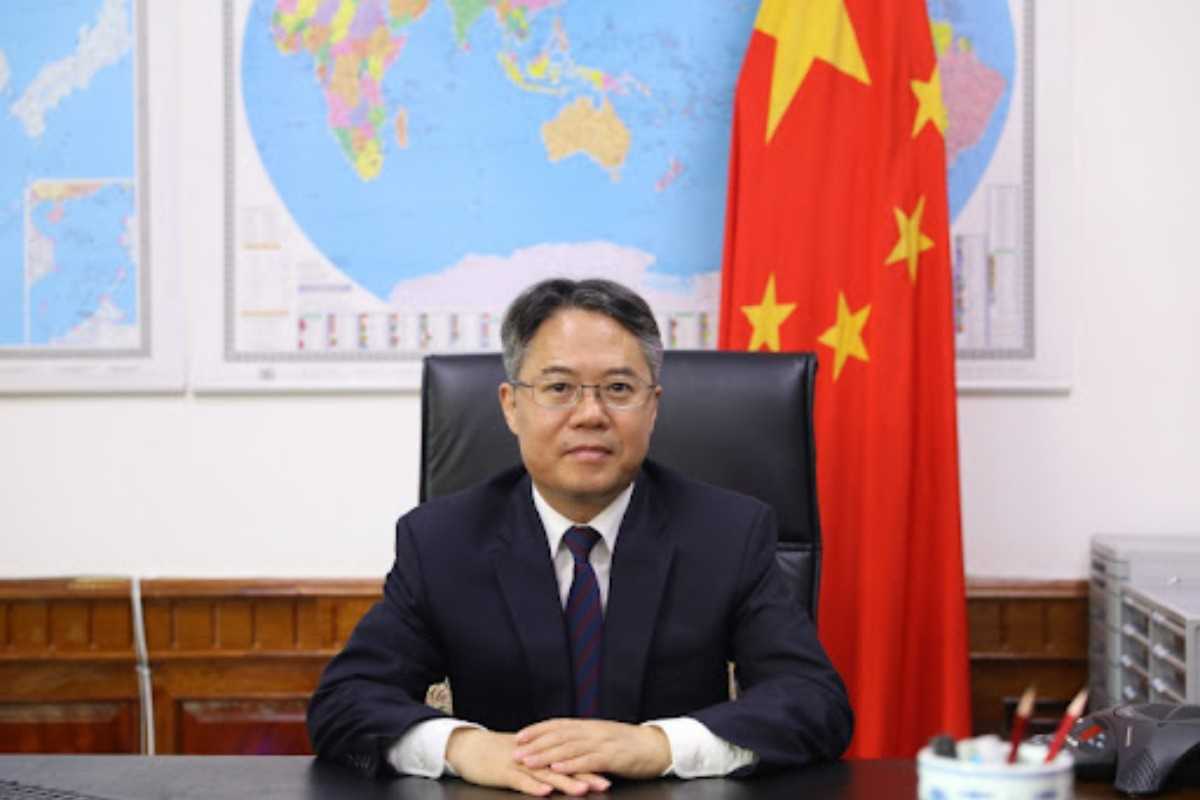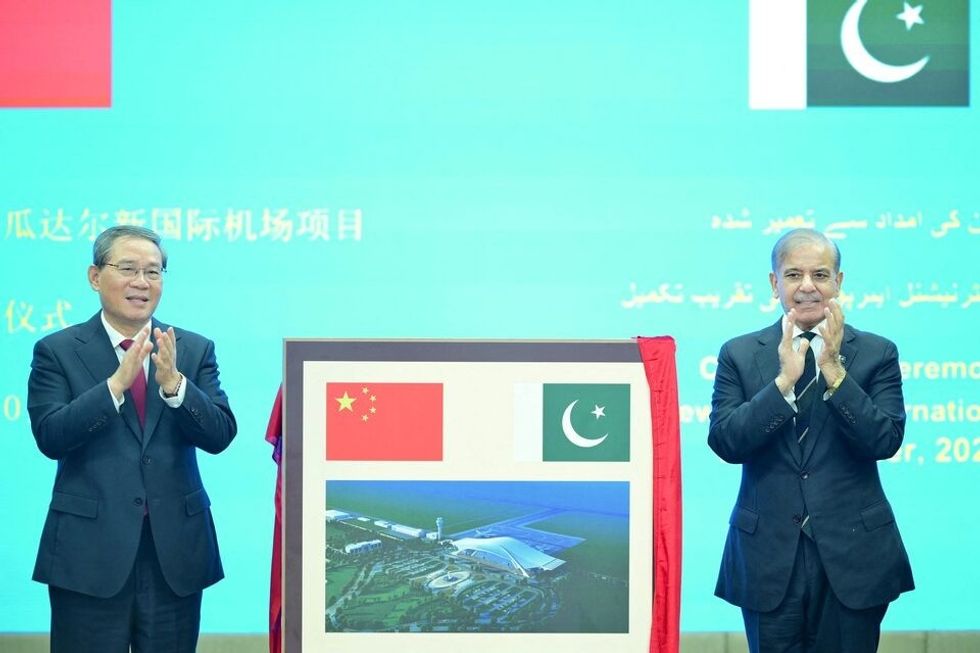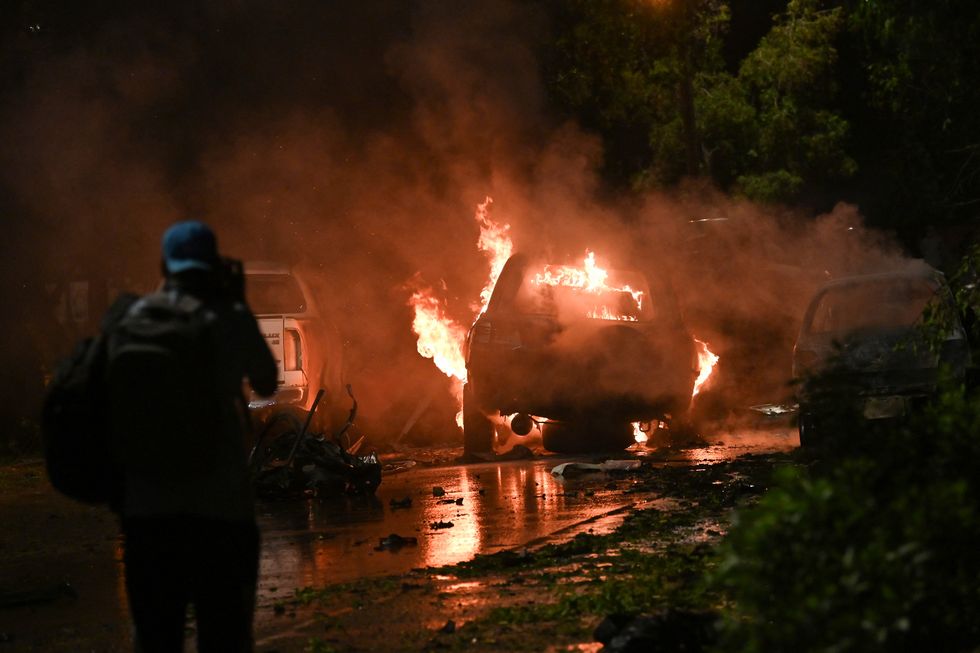Pakistan ‘surprised’ with Chinese envoy’s rare rebuke on CPEC security
Pakistan denies summoning Chinese envoy after ‘unacceptable’ terror attack remarks; underscores strong bilateral relations

Asma Kundi
Producer, Islamabad
Asma Kundi is a multimedia broadcast journalist with an experience of almost 15 years. Served national and international media industry as reporter, producer and news editor.

Chinese Ambassador Jiang Zaidong.
Courtesy: Embassy of the People's Republic of China
Ambassador Jiang publicly expressed concern over repeated targeting of Chinese workers in Pakistan, calling it ‘unacceptable’
Pakistan’s Foreign Office calls Chinese diplomat’s description of the incidents as both ‘surprising’ and ‘not in line with diplomatic norms’
Security and political analysts think Jiang’s statement reflects China’s growing frustration over security conditions
Pakistan and China are time-tested friends and allies; however, Chinese Ambassador Jiang Zaidong’s rare public rebuke over recent attacks on Chinese nationals in Pakistan appeared to have caught Pakistani officials off guard.
Ambassador Jiang publicly expressed concern over the repeated targeting of Chinese workers in Pakistan at a seminar in Islamabad earlier this week, calling it “unacceptable”.
He urged Pakistan to intensify efforts to counter anti-China terrorist groups, referring to two deadly suicide bombings in March and October that resulted in the deaths of seven Chinese nationals, bringing the death toll of Chinese workers in Pakistan to 21 since the launch of the China-Pakistan Economic Corridor (CPEC) a decade ago.

In a detailed response on Thursday, Pakistan’s Foreign Office called Ambassador Jiang’s description of the incidents both “surprising” and “not in line with diplomatic norms”.
Foreign Office spokesperson Mumtaz Zahra Baloch reaffirmed Pakistan's commitment to securing Chinese citizens, who are considered “highly regarded guests and key contributors to Pakistan’s development.”
Ambassador Jiang’s remarks
Addressing the seminar, China at 75, Jiang underscored the urgency for Pakistan to safeguard Chinese citizens involved in CPEC projects, noting that “without a safe and sound environment, nothing can be achieved.” The seminar, organized by veteran Pakistani politician Senator Mushahid Hussain, saw Jiang delivering two speeches – one before and one after Pakistani Deputy Prime Minister Ishaq Dar, marking an unusual diplomatic intervention.
In his first statement, Jiang pointed out that security issues have become the primary constraint to the progress of CPEC, a multi-billion dollar initiative critical to China’s Belt and Road Initiative (BRI). After Dar’s speech, Jiang reiterated his concerns, calling for Pakistan to “severely punish the perpetrators” and undertake comprehensive crackdowns on anti-China terrorist elements.
“It is very unacceptable for us to be attacked twice within only six months, and these attacks have also caused casualties,” Jiang said. He cited President Xi Jinping’s priority on the safety of Chinese nationals abroad and revealed that during every bilateral meeting, Xi urges Pakistan’s leaders to ensure the protection of Chinese personnel, institutions, and projects.

Jiang’s comments came in response to Deputy Prime Minister Dar’s remarks where he said, “The Chinese are very clear – no matter how lucrative an investment, if there is a security issue, they will not send their personnel. Your country is the only exception, as conveyed by Chinese leadership to the Prime Minister of Pakistan.”
At Thursday’s briefing, Foreign Office spokesperson Baloch conveyed Pakistan’s surprise at Jiang’s public critique, asserting that diplomatic exchanges between the two nations are customarily handled “through established channels.” She noted that the SCO summit meeting underscored Pakistan’s commitment to Chinese security and described Jiang’s comments as not reflective of typical Pakistan-China diplomatic practice.
Chinese Ambassador not summoned: FO
Following Jiang’s remarks, media reports suggested that the Chinese Ambassador had been summoned by the Foreign Office to clarify his statements. Unnamed diplomatic sources indicated that Pakistan had presented Jiang with a protest letter, urging restraint in public commentary on bilateral issues, as such remarks could “potentially affect bilateral relations.”
However, Foreign Office spokesperson Baloch dismissed these claims as “inaccurate”, clarifying, “The reports on some channels about the Chinese Ambassador being summoned for a demarche are incorrect.” She explained that Jiang’s visits to the Ministry of Foreign Affairs were routine, adding, “We urge media outlets to avoid sensationalism and verify information before publishing stories that could harm our relationship with China.”
What do analysts say
Security and political analysts remarked that Jiang’s statement reflects China’s growing frustration over security conditions. “This is not the first time China has expressed concerns about the safety of its nationals in Pakistan,” said Hassam Askari, a security and political analyst. He noted that the escalating attacks on Chinese nationals are prompting Beijing to take a more vocal stance, pressing Pakistan for stronger security measures.
Amir Rana, director of the Pak Institute for Peace Studies in Islamabad, observed that China has repeatedly communicated its concerns about security, both through formal channels and recent high-level visits. “China’s patience may be wearing thin,” he said. “The Standard Operating Procedures (SOPs) currently in place for Chinese personnel are outdated and require serious updates to address current threats.”
Rana added that while it’s not uncommon for key allies to voice dissatisfaction, “such phases are usually temporary and, in this case, unlikely to have long-term consequences.” He emphasized that China’s investment in Pakistan through CPEC remains substantial, but an intensifying security issue could push Beijing to consider contingency measures.
CPEC’s future, ongoing security challenges
The repeated attacks on Chinese nationals cast a shadow over CPEC, a cornerstone of China’s Belt and Road Initiative and a major source of infrastructure funding for Pakistan. Since its inception in 2013, CPEC has faced intermittent security issues, with attacks attributed to separatist and militant groups. Despite Pakistan’s assurances and efforts to fortify security, attacks in recent months indicate significant challenges remain.
As Pakistan and China continue to navigate their shared security concerns, Pakistan’s Foreign Office reaffirmed its dedication to the safety of Chinese nationals, portraying recent incidents as unfortunate but not indicative of future trends. However, analysts suggest that without significant reforms to Pakistan’s counter-terrorism strategies, tensions surrounding security are likely to persist.
With both nations reaffirming the value of their strategic partnership, Pakistan’s Foreign Office reiterated that diplomatic channels remain open for continued dialogue on mutual interests, including enhanced security protocols for CPEC.






Comments
See what people are discussing